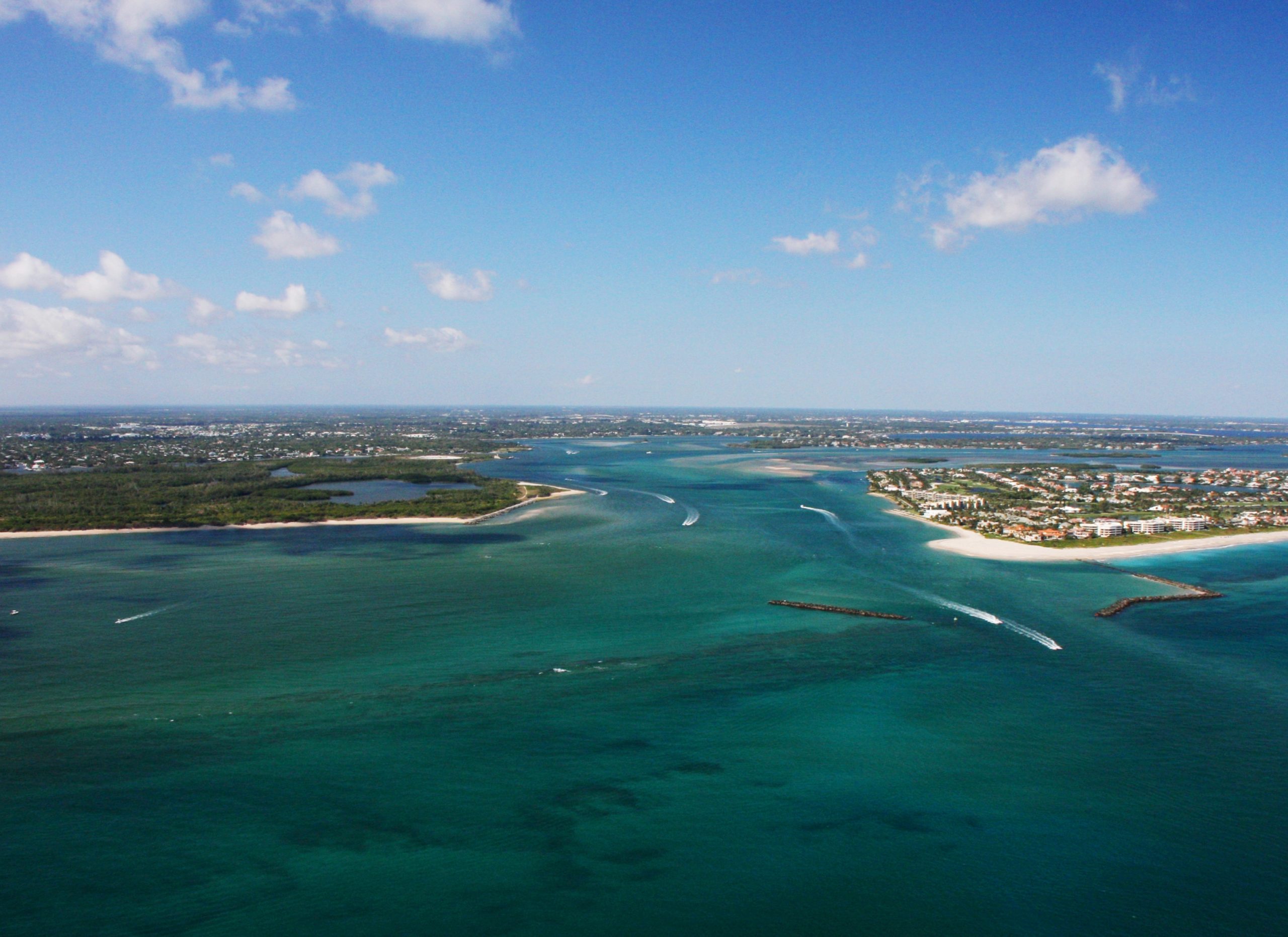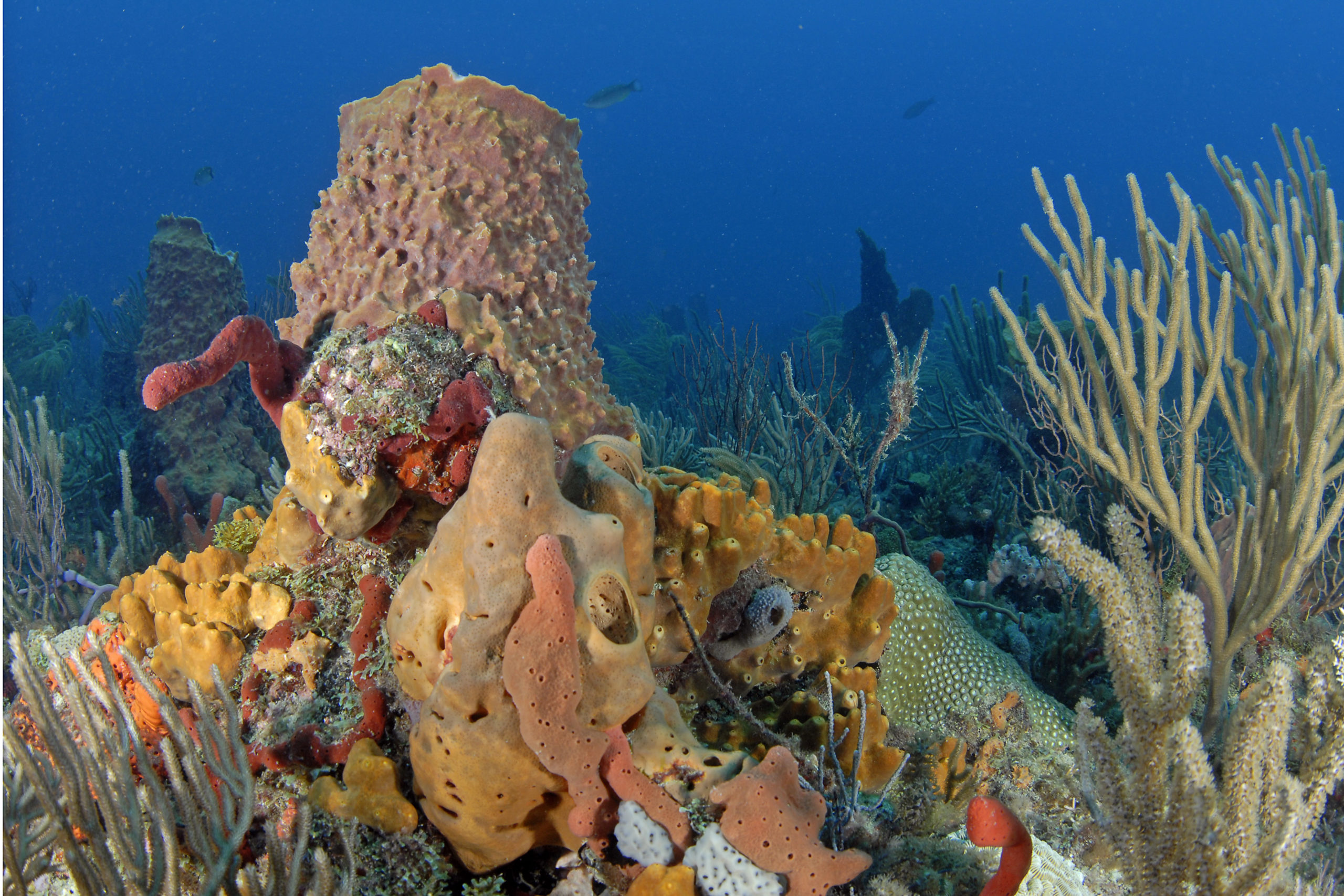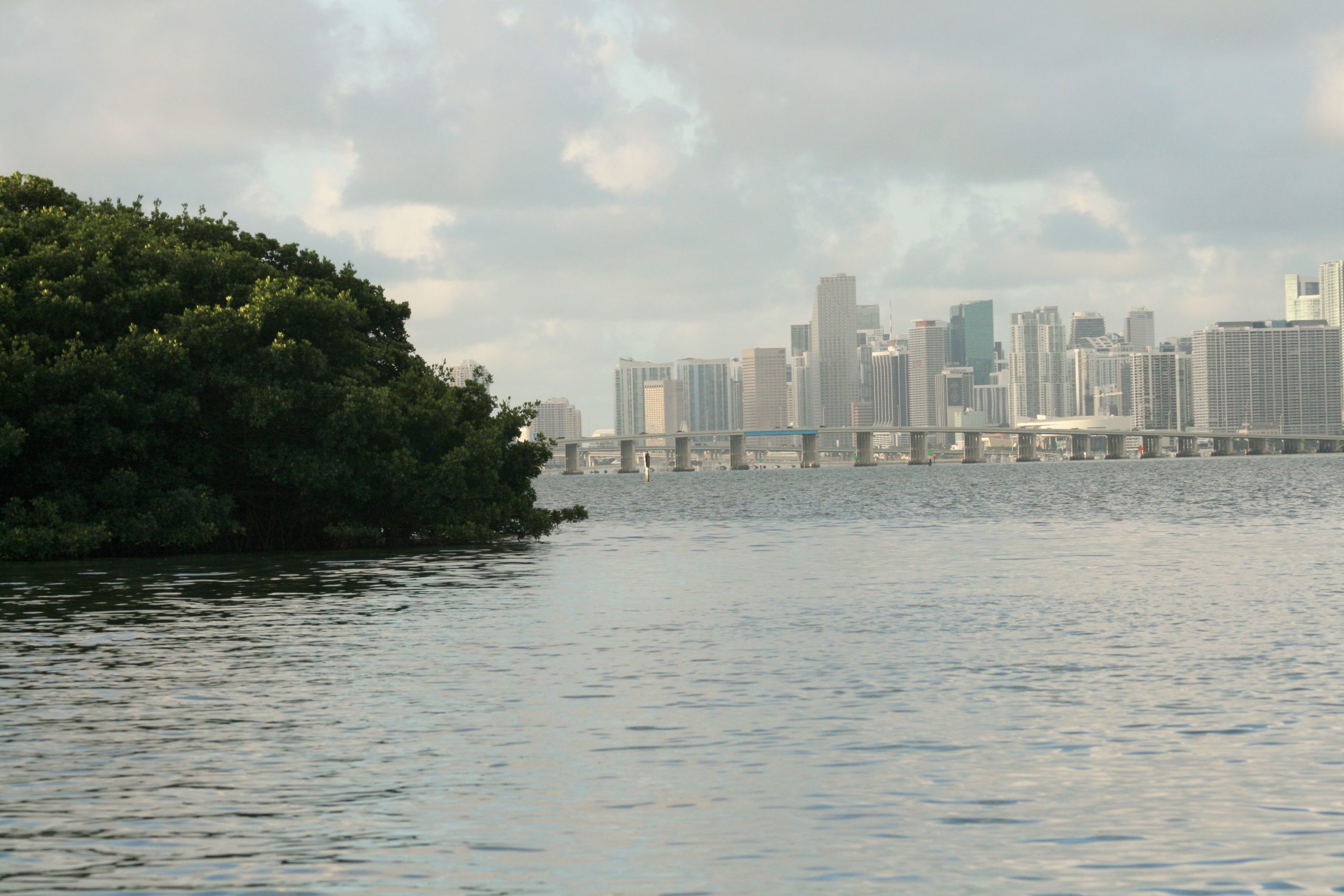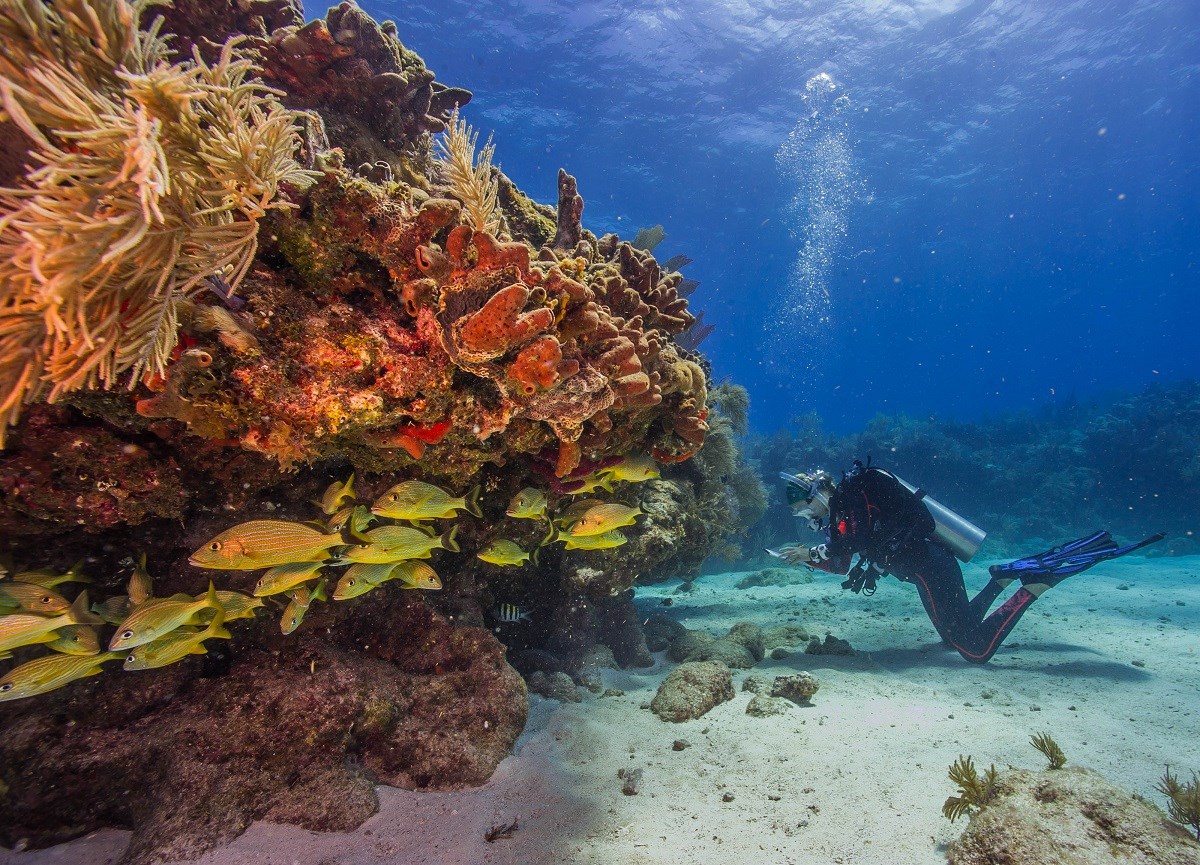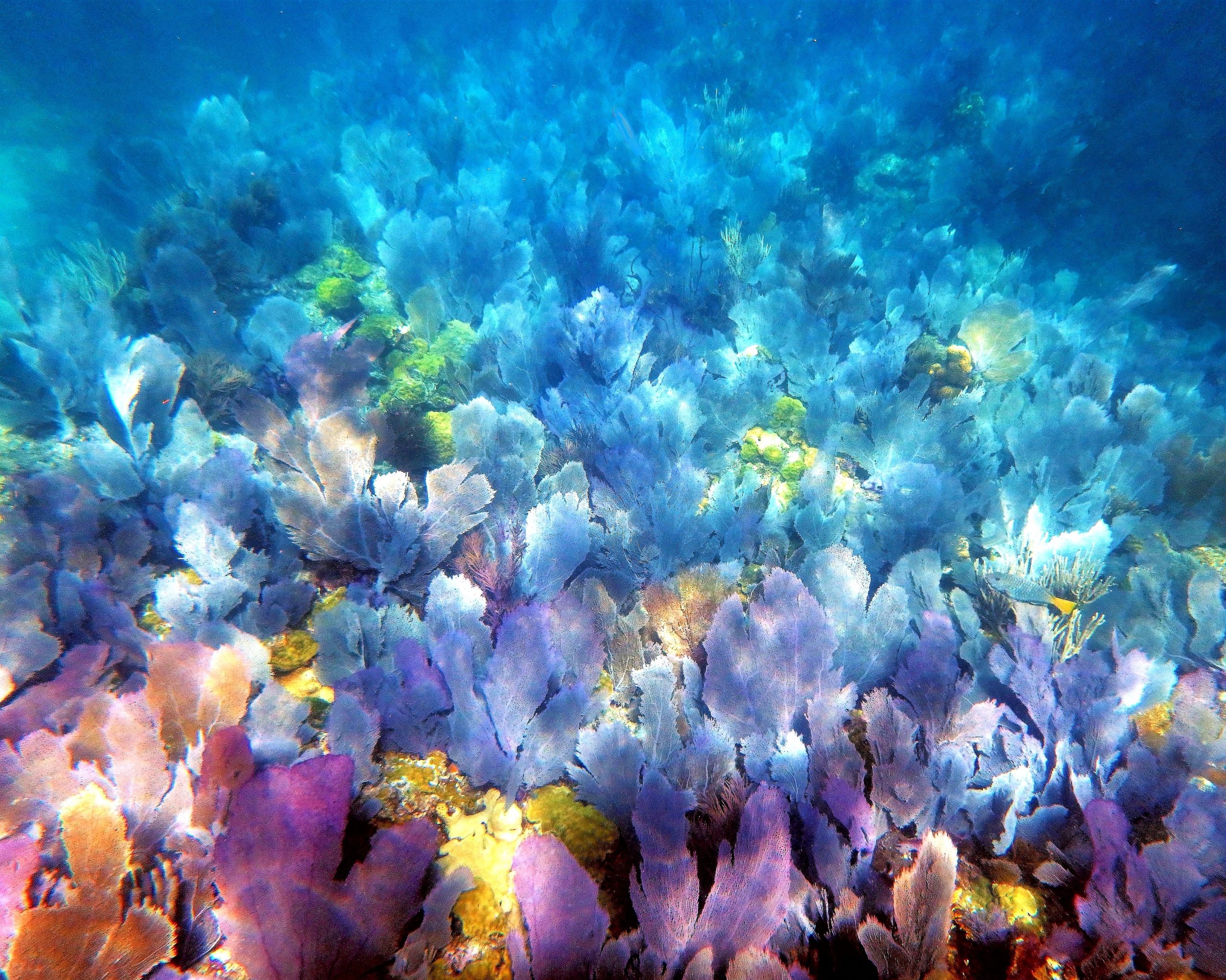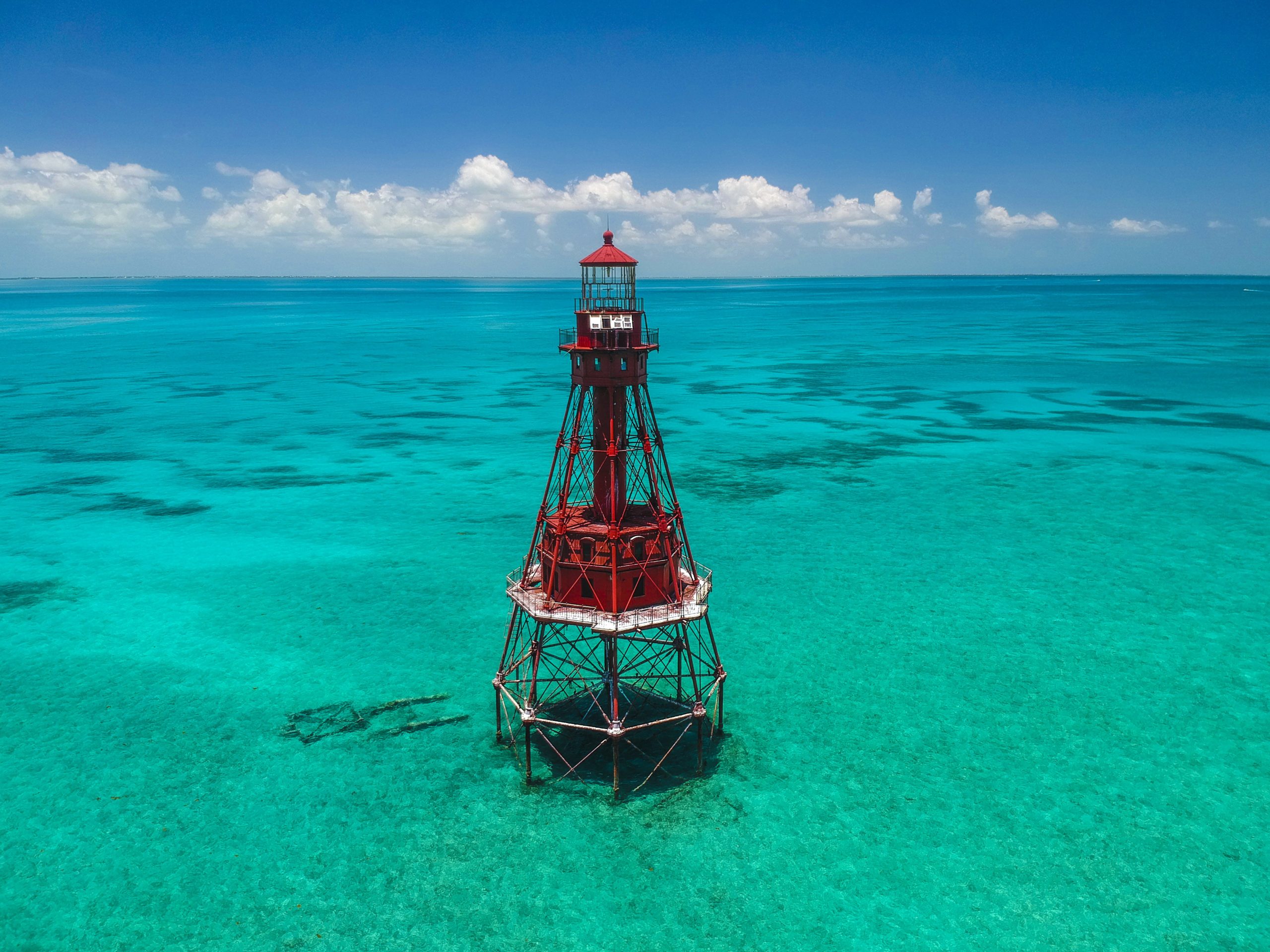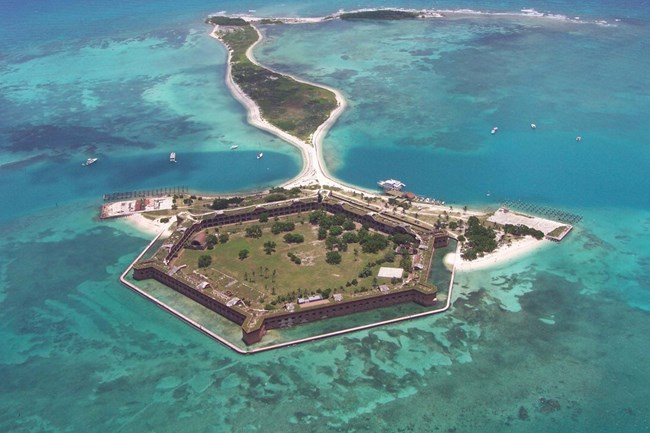Boating
Florida is often called the boating capital of the nation, with more than 930,000 registered vessels. Florida’s numerous natural resources such as mangroves, seagrasses, estuaries and coral reefs are a major draw for resident and visiting boaters alike. Outdoor activities associated with boating such as birding, fishing, swimming, snorkeling and diving contribute to Florida’s growing economy.
However, coastal ecosystems such as coral reefs, mangroves and seagrasses are highly sensitive to increased traffic and pressure by boaters. Careless boating practices can cause immediate and significant damage to natural resources and marine animals, including injuries to coral reefs that can take decades to heal. Vessel hulls, anchors and heavy chains can fracture or crush corals, destabilize hard bottom reef framework, scrape the top layer of the reef, and dislodge a variety of soft and hard coral species. Vessel groundings can obliterate an entire area of reef, flattening it into a rubble field or “pavement” area. While smaller boats may cause less damage, areas of heavy recreational boating and fishing can also have serious consequences for coral reefs due to cumulative impacts.
Recreational anchoring impacts have been partially alleviated due to the installation of mooring buoys and public awareness campaigns in many locations. However, anchoring on reefs remains a chronic problem along Florida’s Coral Reef.
Anchoring and grounding incidents also damage reef-associated habitats such as seagrasses, which provide critical nursery and juvenile habitats for many coral reef species.
The Florida Coral Reef Protection Act was enacted in 2009 to increase protection of coral reef resources on sovereign submerged lands. The act applies to coral reef and hardbottom habitat within state of Florida waters off the coasts of Monroe, Miami-Dade, Broward, Palm Beach and Martin counties and makes it illegal to anchor on or otherwise damage Florida’s Coral Reef.
Responsible Practices for Boating
Florida boaters can have a safe and enjoyable time on the water while also caring for important local marine life. The millions of boaters visiting Florida’s Coral Reef each year can minimize or prevent anchor and grounding damage by using these responsible boating practices and encouraging others to do the same.

- Participate in an approved boater safety course and obtain a Florida Boating Safety ID Card before operating a motorized vessel.
- Use publicly available, legally installed, free mooring buoys and encourage other boaters to do the same. Help other boaters locate available mooring buoys. Maps are available for Miami-Dade, Broward, Palm Beach, Martin and Monroe counties and Biscayne National Park.
- Anchor in the sand away from the coral reef and be sure your chain is not swinging over hardbottom habitat.
- Carry enough chain and line to safely anchor at your planned depth (recommended seven times the depth).
- Always check the area for coral, seagrass and other sensitive habitats before anchoring, either visually or from a nautical chart or by using the Southeast Florida Reefs Map.
- If the anchor is stuck, do not yank it. Move the vessel in the direction of the anchor while slowly pulling up the anchor chain until the vessel is directly above it, then proceed to pull it up vertically.
- To avoid vessel groundings, be mindful of anchoring in shallow areas, particularly at high tide. Consult bathymetry maps to plan a route that avoids shallow areas.
- Report marine incidents to SEAFAN or C-OCEAN. Marine incidents include vessel groundings; anchor damage; algal blooms; fish kill and disease; coral disease and bleaching; discolored water; and the presence of invasive species. Report what, when and where the incident was observed, and SEAFAN or C-OCEAN will coordinate a response.
